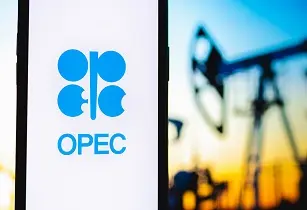OPEC+ announced additional voluntary production cuts and an extension to existing reductions into 2024
But it’s a bittersweet victory for Saudi Arabia.
Here is Rystad Energy’s oil market update from senior vice president Jorge Leon:
OPEC+ decided to reduce output by 1.7 mn barrels per day (bpd) until the end of the first quarter of 2024.
The cut combines the voluntary 1 mn bpd reduction by Saudi Arabia and an additional 0.7 mn bpd voluntary cut from Iraq, the UAE, Kuwait, Kazakhstan, Algeria and Oman.
Russia has also pledged to extend its voluntary 500,000 bpd export reduction (300,000 bpd for crude and 200,000 bpd for fuel products).
The outcome of the ministerial meeting is a bittersweet victory for Saudi Arabia, the group's kingpin.
The Kingdom won the backing of some OPEC+ members to contribute to output cuts into next year, but others remain opposed or on the fence and are not included in this fresh round of reductions.
The inability to secure a group-wide decision on production cuts does not bode well for the group’s unity and cohesion and limits the group’s ability to balance the market.
Oil prices immediately sunk after the announcement, reversing gains from earlier in the day, suggesting the market was disappointed by the outcome.
This is down to two reasons: firstly, the cuts are short-term, for now, and only valid for the first quarter of 2024.
Second, and most importantly, the group failed to agree to a strategy unanimously and had to rely on voluntary unilateral cuts instead.
The meeting was initially scheduled for 26 November, but disagreements over output quotas for African countries forced the group to delay the meeting by four days.
With these renewed cuts, our updated liquids balance for the first half of 2024 shows a market deficit of around 400,000 bpd.
As a result, we expect prices to hover between US$80 and US$85 per barrel in the coming months.
Another important outcome of the ministerial meeting was Brazil's decision to join the OPEC+ alliance.
Brazil is the eighth-largest oil producer globally, producing around 3.6 mn bpd.
Adding Brazil’s production to the group will take OPEC+’s global market share to more than 60%, returning it to 2018 levels.









